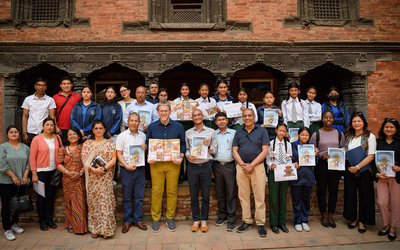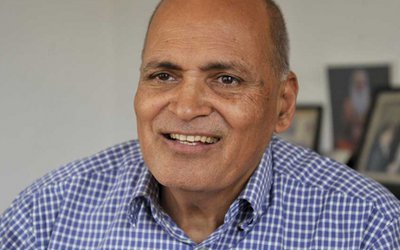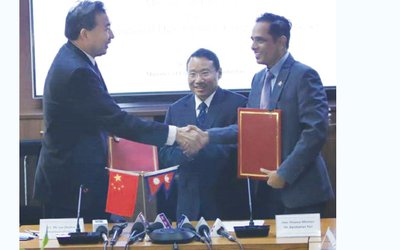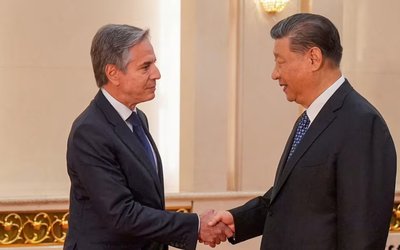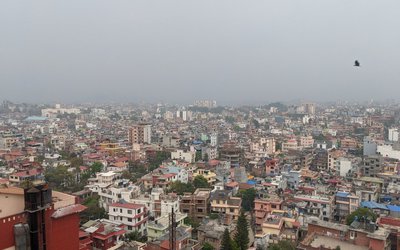Nepali expressions of folk wisdom – such as kaam kuro ekatira, kumlo boki arkotira – make fun of futile or diversionary activities. One hears them in teashops and newspaper kiosks wherever people are talking about the Constituent Assembly, the parties or the cabinet. Their lack of seriousness is highlighted by the news, following the much-hyped signing of the pointlessly repetitive 7-point peace deal, that the high level commission – chaired by the prime minister charged with implementing that deal in the short three weeks left for the CA – could not meet because of a lack of quorum. Most of its powerful members are junketeering abroad! The Maoist Supremo Prachanda, whose party officially espouses the Marxist dictum of religion being the opium of the masses, is in New York fund-raising for Lumbini as if it were a tourist goldmine and not a holy Buddhist site, the sanctity of which is best left to the Buddhists themselves to manage. Add the fact that the CA did not meet at all or met only for a few hours during its last extensions and you get the picture of irresponsibility before the voters coupled with insultingly brazen impunity.
Politicians being as rational with their self-interest as anyone, there is an insidious method to this madness. To understand its rationale, one first needs to wade past the media hype about Baburam’s Delhi visit and the four leaders’ subsequent 7-point agreement. And then one realizes that the overt agenda of peace and constitution are but props that Nepal’s neo-feudal political parties need for their covert aim of postponing elections.
The prime minister’s Delhi visit and the signing of the BIPPA with India were puffed up as the dawn of a new age. It met opposition and ridicule back home for several reasons. First, Baburam himself had said that this would be a goodwill visit where he would not sign any agreement of long-term consequence. But he did, and termed it an audacious “gamble” reminding many of the wholly unjustified gambling by the rulers in the Mahabharata. This deal had not been discussed within his party, between parties, nor had it even been discussed and approved by Baburam’s incomplete cabinet. Since it had previously been turned down by the UML-led governments, it was bound to raise questions about what national interests Baburam had compromised. It rankled many Nepali investors: in the lawless climate of political thuggery, where Nepali industries are closing down due to extortions by Baburam’s and other parties, why should Indian investors be provided special protection? And finally, if Baburam’s own party is vandalizing the properties of foreign investors, why should the damages be compensated by Nepali taxpayers and not recovered from his (by now very cash-rich) party? These objections forced Baburam to admit at his party’s tea party (aired over Radio Nepal on 1st November) that it was “no big deal”, that Nepal and hundreds of other countries had signed many such deals.
That is precisely the point: if it was meaningless, why sign it? And is this the burning issue before Nepal today that the prime minister under multiple sieges needs to put on his priority list? Indeed, BIPPA seems to be a graduate student’s survey programme gone awry. If hundreds of countries have to sign separate bilateral agreements with each other, does it not make it superfluous? Why then bother with WTO or MIGA? What does BIPPA give that MIGA, WTO and the 1950 Treaty with India do not? For national development to happen, ALL investments, especially national ones, must be protected. And they must be protected not by virtual statements of good intent, which is what BIPPA in its most charitable version is, but by real laws and institutions. An American friend discussing the Euro crisis told a story that applies to Nepal magnified many times. His family owns property in Portugal that has several houses and swimming pools worth millions; but all that is listed under Portugal’s old laws as “donkey pasture” and they pay only 13 thousand Euros of taxes. No wonder the countries that were rushed into EU membership with haste as the Soviet one collapsed in an attempt to expand the NATO Empire do not have the requisite institutional mechanisms for market functioning. BIPPA certainly won’t help in “donkey pasture” legal regimes like Nepal.
There is a similar tinge of fraud about the hype behind the 7-point deal. The “peace” cobbled in haste by external principals in 2006 for regime change in Nepal did not come about with a change of heart among the protagonists: the corrupt parliamentary parties were not about to give up on the agenda of corruption or their corrupt leaders, nor were the Maoists prepared to give up on violence as a political tool or their dream of single party monism. This 7-point deal does not indicate any shift of thinking among the protagonists, or their contradictory agendas in the CA. Now the deputy prime minister is thumping his chest about the need for ten thousand Madhesis to be inducted as separate regiments in the Nepal army (forgetting that there are already about seven thousand Tarai youths in it already on merit basis). It goes without saying that, failing that bargain, he and others would like ten thousand of their cadres to be given the “golden handshake” just as the Maoist cadres in the cantonment will be. And like them, they can then go back to their villages, ready to take up arms for the next political campaign around.
“Bringing the peace process to a logical conclusion” is mere political witchcraft incantation used to justify self-extending the expired mandate to rule of what are now political squatters. It is the “peace project” of November 2005 that is nearing its logical death: processes do not conclude but morph into another. Projects, on the other hand, are born and are designed to end, but do so sometimes sooner with unintended consequences. The brilliant late Saubhagya Shah had correctly termed the “peace agreement” signed by the parties and the Maoists as “compromised peace”, which is what the Nepali expression means. In a similar vein, critical Nepali social scientists have been questioning the real meaning behind “state re-structuring”, the quicksand in which the political project of November 2005 compromise is sinking. Unable to define clearly what the state and its structure are that need re-structuring, they have been attempting instead to “re-structure the nation”, which is not what can be done by the CA or any other legislative body.
Unlike post-colonial states such as in our South Asian neighbourhood, the Nepali nation-state was born at the same time (1769) as the first modern nation-state in history, the United States in 1776, which was born of the earlier Puritan revolt in England. This idea of the nation-state challenged the universal states of Christendom (in the French Revolution) and Islamic Ottoman Ulema (in WWI). Nepal was based on language (e.g. Bhanubhakta’s Ramayan) as well as sacred geography. The territoriality of the ruler’s mulk, the sacred realm of the desh, and the kul dharma of peoples’ pradesh were bound by Prithvi Narayan’s phulbari multi-nationalism. The squatter CA with all its illiterate political acrobatics has wounded it, but cannot even conceptualize an alternative.

Dipak Gyawali
Gyawali is Pragya (Academician) of the Nepal Academy of Science and Technology (NAST) and former minister of water resources.
- Maldevelopment And Technology: Ethos Harbingering Coming Apocalypse
- Apr 03, 2024
- World Social Forum: Rethinking and Redefining Development Itself
- Feb 21, 2024
- Remembering An Inspiring Karma Yogi
- Jan 09, 2024
- New World Disorder And The Case For Ideology
- Dec 13, 2023
- Loktantra’s Moral Turpitude
- Nov 06, 2023






